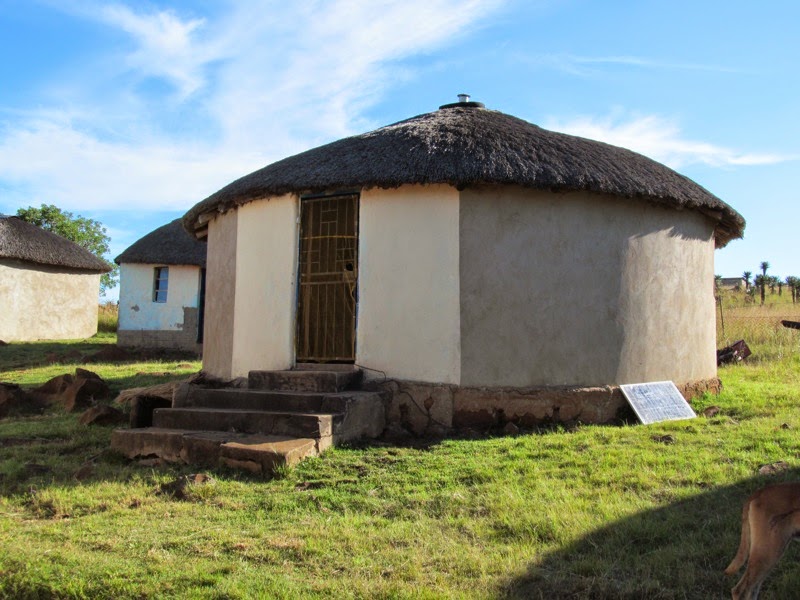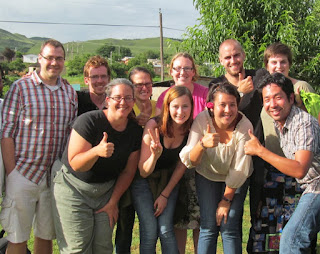 |
| My Zulu home - complete with solar panel. |
I was a little unsure at first about spending New Year’s Eve
in my village, because I was afraid I was going to feel sort of alone; but then
I remembered that New Year’s has never really been my thing, and with few
exceptions (like in 1995 when I was at the Rose Bowl) they have been pretty
boring and usually involve me going to bed way before midnight. Little did I
know that this rural village without electricity rings in the New Year like
it’s Times Square! The neighbors had a pretty extravagant party, complete with
food, candles, car stereo music, and plenty of beer. And at midnight there were
fireworks! Now, it was perhaps the world’s smallest fireworks display, but
there were fireworks nonetheless. The funniest part was how quickly it ended
after the clock struck twelve. I think that most people here, myself included,
are not used to going to bed so late. But it was quite a fun surprise to be
part of the celebration.
When I walked around the village on New Years Day to say
hello and wish people happy new year (which by the way is translated into Zulu
as “happy new year”) a woman told me how embarrassed she was at all the noise
from the night before. She explained that she celebrated the new year by waking
up at midnight and praying for a prosperous year for her and her family and
then returning to bed. But she knows that many people in the village celebrate
by drinking too much and being too loud. Then she asked me how Americans
celebrate the New Year. I thought about telling her that we also wake up and
pray, but instead I told her the horrible truth that our cultures seem to have
the drinking and being noisy thing in common. She tried not to act
disappointed.
All in all, I am really happy that I decided to stay “home”
for this holiday, as it was certainly one of the most unique New Year’s
experiences I have ever had.










